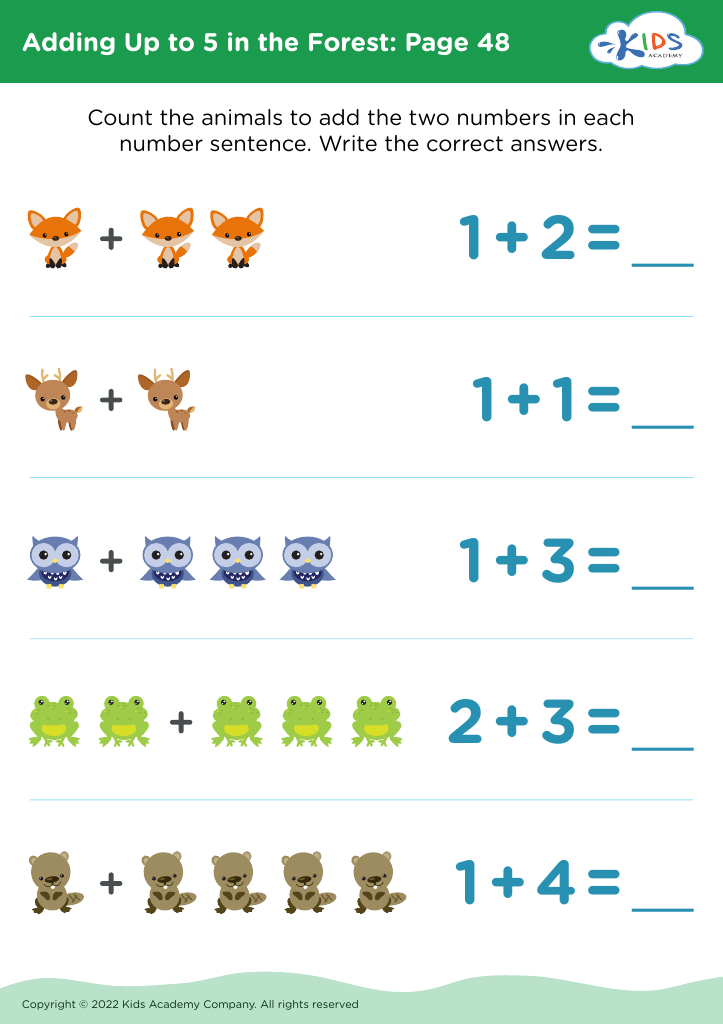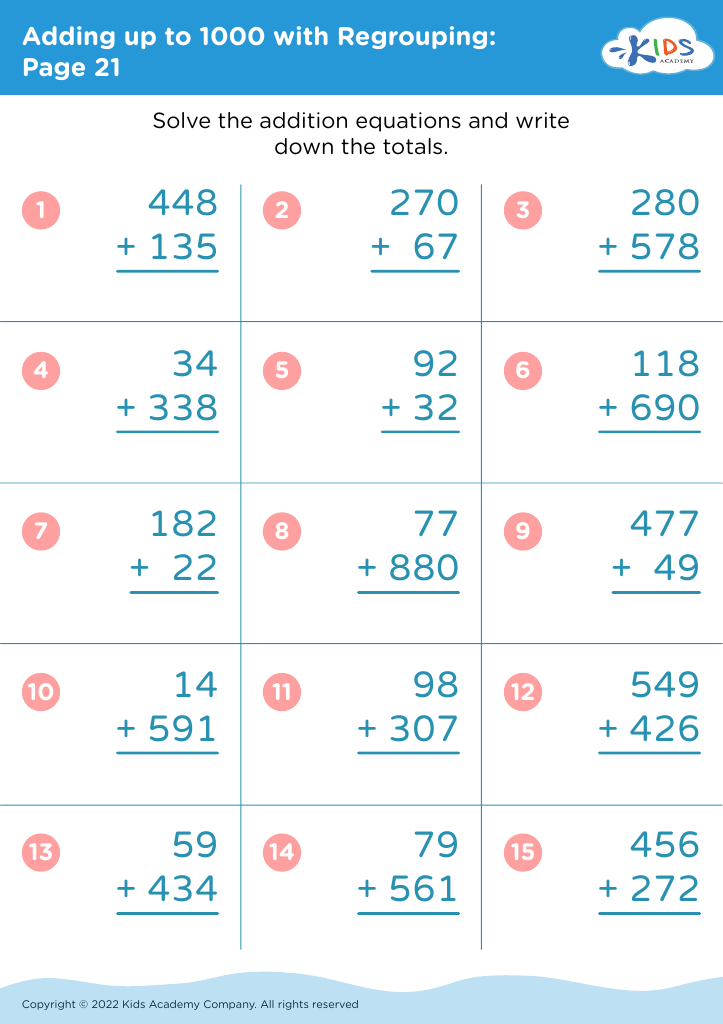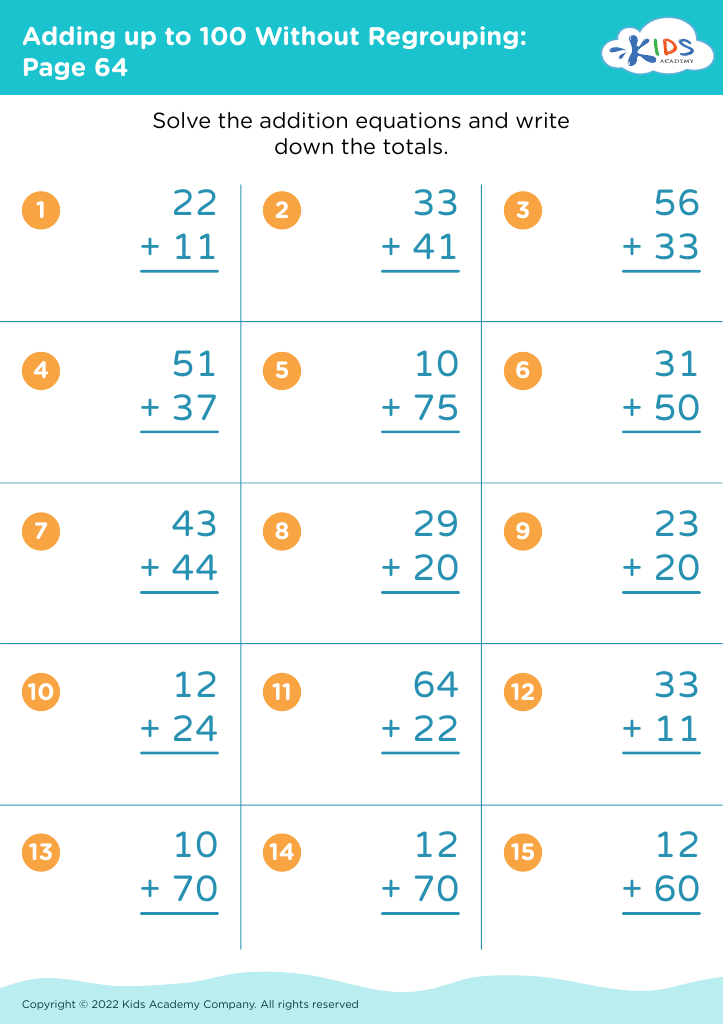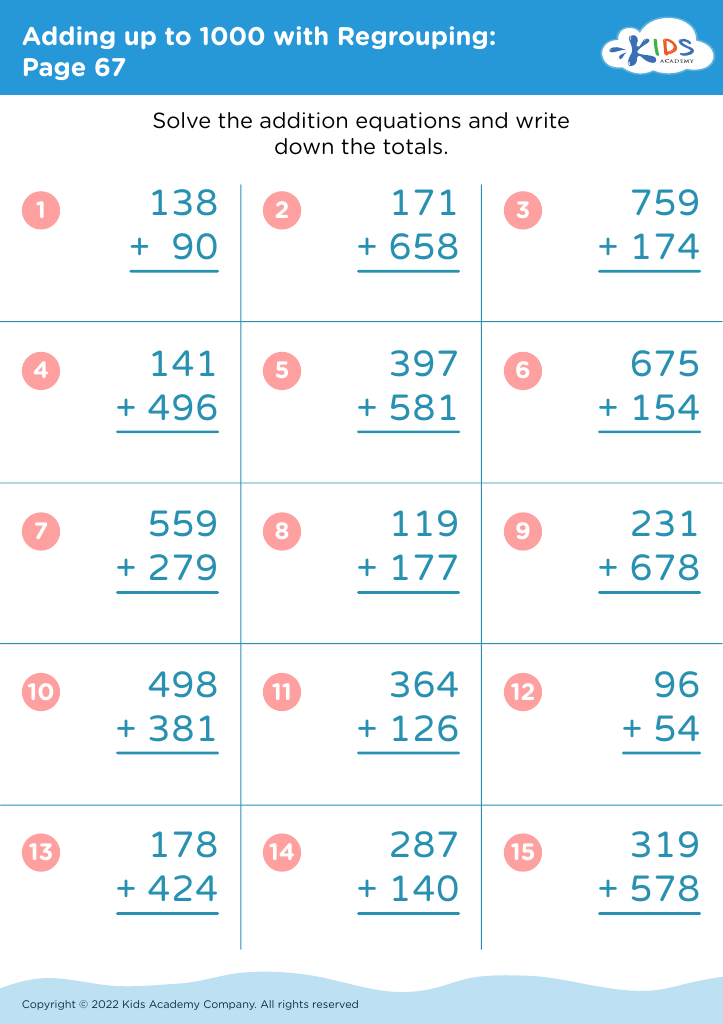Number identification Addition & Subtraction Worksheets
5 filtered results
-
From - To
Enhance your child's math skills with our Number Identification Addition & Subtraction Worksheets. These engaging resources are designed to help young learners master numerical literacy while practicing essential arithmetic operations. With fun and interactive exercises, children identify numbers and perform basic addition and subtraction, building a solid foundation for future math success. Perfect for both classroom and at-home learning, our worksheets cater to different skill levels and make math enjoyable. Watch your child’s confidence soar as they develop crucial problem-solving abilities. Discover the perfect blend of education and fun with Kids Academy's expertly crafted worksheets.
Parents and teachers should prioritize number identification, addition, and subtraction as foundational math skills because they are crucial building blocks for a child's future academic success and everyday functioning. Proficiency in these areas fosters strong numerical literacy, which is essential for understanding more complex mathematical concepts encountered in later years, such as multiplication, division, fractions, and algebra.
Early mastery of number identification ensures that children recognize and understand numbers, which is pivotal for engaging in any numerical operation. Being comfortable with addition and subtraction develops a child's problem-solving abilities and logical thinking skills, which are valuable both in school and in daily life. For instance, tasks like budgeting an allowance, measuring ingredients while cooking, or calculating time depend on these fundamental math skills.
Furthermore, developing a strong foundation in these areas can boost a child's confidence and foster a positive attitude towards learning mathematics, reducing anxiety and promoting a growth mindset. Early arithmetic skills also intersect with cognitive development, improving memory, attention to detail, and critical thinking.
By caring about and actively engaging in their children’s early math education, parents and teachers help pave the way for academic achievement, practical life skills, and an overall enthusiasm for learning that can benefit a child for years to come.


















